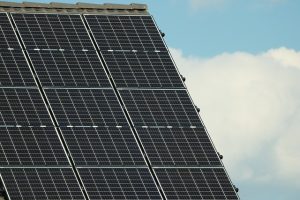
Solar power is on the rise. According to the U.S. Department of Energy (DOE), 22% of the country’s power now comes from solar. While solar panel systems offer a clean and renewable source of power, they require an initial investment. Rather than buying a solar panel system, however, some homeowners and business owners opt for a power purchase agreement (PPA).
A PPA is an agreement between a property owner and a solar provider. It allows the property owner to purchase power produced by the solar panels at an agreed-upon rate. Solar PPAs offer both advantages and disadvantages, some of which are discussed below.
Pro: No Installation
Installing solar panels can be difficult. Among other things, property owners must mount them, wire them and ensure the connections are tight. With a PPA, though, the provider will install the solar panels. The provider will send one or more solar technicians to the property to set up the solar panels.
Pro: No Maintenance
In addition to installing solar panels, PPA providers also maintain them. Solar panels require some basic maintenance. They must be regularly cleaned to prevent debris buildup that could otherwise affect their efficiency, and the angle at which they point must also be adjusted for maximum efficiency. PPA providers handle all maintenance with the property owner’s solar panels.
Pro: Low Upfront Costs
One of the greatest benefits of a PPA is low upfront costs. Property owners don’t have to purchase the solar panels, nor do they have to pay for installation. Instead, the solar provider handles these initial costs.
Con: Power Must Be Purchased
It’s important to note that the power purchased by solar panels under a PPA must be purchased. After all, that’s why this agreement is called a “power purchase agreement.” Property owners must essentially buy the newly produced solar power from the solar provider. While the purchase price is typically discounted compared to utility power, property owners must still pay for it.
Con: Potential for Higher Rates
The rate at which property owners purchase power from solar providers may increase. Many PPAs have a lower initial rate that increases over time. Known as a price escalation clause, it can lead to higher power costs.
Con: Lack of Ownership
With a PPA, property owners don’t actually own the solar panels installed on their property. Instead, the solar provider owns them. And because property owners don’t own the solar panels, they aren’t eligible for many discounts, such as tax credits.
